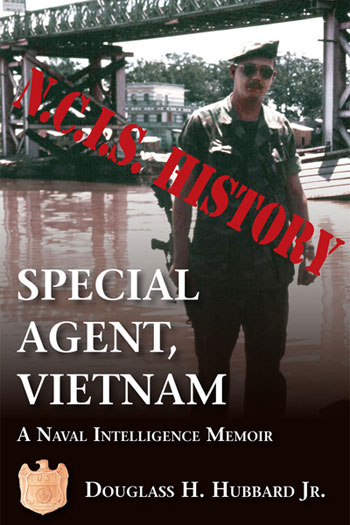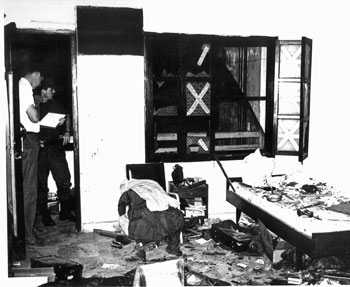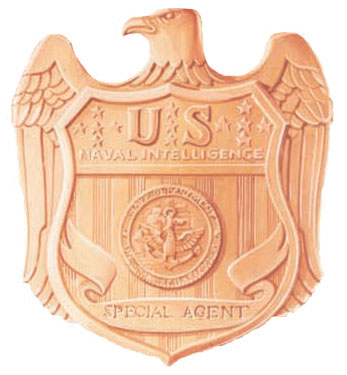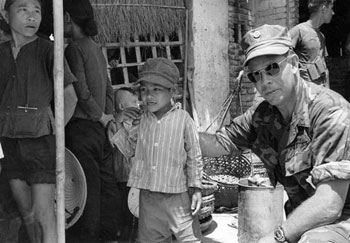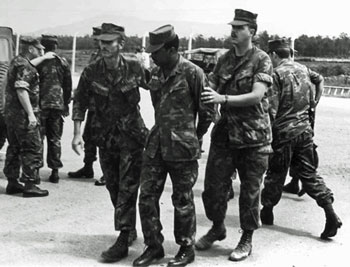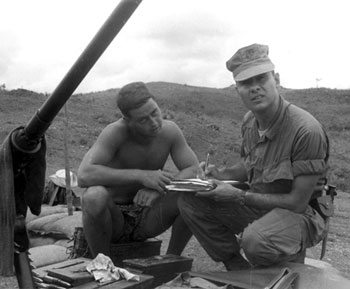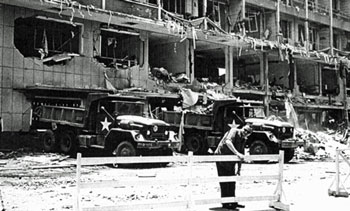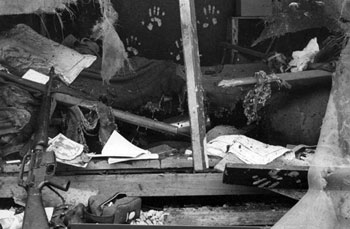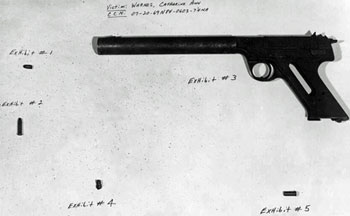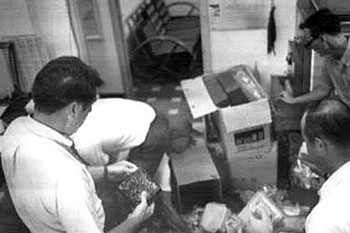NCIS History Special Agent Vietnam...
The First Comprehensive Account Of The Naval Investigative Service In Vietnam
Where To Purchase The Book
To Purchase NCIS History From Amazon, Click This Link
Where To Purchase For Kindle
To Purchase The NCIS History For Kindle At Amazon, Click Here
Review Courtesy of CIA Clandestine Service Former Director
Michael J. Sulick and used here with his permission.
Doug Hubbard’s first-hand experience provides unique insights into this little explored topic of the war, and the addition of a broad spectrum of his photos complements the narrative with a real life appeal.
In an
era when the term “terrorism” was not yet in vogue, NIS’ investigations of
insurgent attacks against U.S. troops is a grim reminder of current threats our
military faces in Afghanistan and around the globe on a daily basis.
NCIS,
today’s Naval Criminal Investigative Service was known simply as NIS during the
Vietnam War. These highly dedicated men of the Naval Investigative Service
were comprised of officers, enlisted men and civilian Special Agents.
N.C.I.S.
History Special Agent Vietnam is the only firsthand account of its kind that
takes the reader into the clandestine dangerous world of counterespionage and
crime, set amidst the sights, sounds and smells of the war in Vietnam.
NCIS History-The Book
This 6x9 inch, 411 page book, contains 116 never before seen photos and maps from the authors three tours of Vietnam. Many of the images were shot by him at the scene, and help to bring to life the accompanying account that he describes in his writing.
For
the first time in print, group photos and the names of those in Vietnam with
NIS are featured, from the first small group in 1964 to the last in 1973.
NCIS History-The NIS In Vietnam
NCIS History Special Agent Vietnam is a fascinating history of the activities of the Naval Investigative Service (NIS) in Vietnam from 1962 to the fall of Saigon in April 1975.
The author, Douglass Hubbard, is the longest serving NIS agent in Vietnam. His book is the only one that chronicles the demanding counterintelligence and criminal investigation missions of the NIS "in country".
He accomplishes this through detailed vignettes of cases drawn from his own experience as well as his interviews with colleagues.
"Strange Twists"
In tracking counterintelligence and criminal leads, Hubbard writes that "there was often a strange twist in the Vietnam environment."
The counterintelligence and criminal investigations, inherently complex even in peacetime, often presented special challenges in Vietnam.
Witnesses sometimes died in combat before trials convened and travel to a crime scene often involved dodging enemy ambushes and mortar attacks.
The author effectively captures the many "strange twists" in his account
of the Vietnam conflict while examining the murky undercurrents of the war and
the crime and corruption that were unfortunate byproducts of the American
experience in Vietnam.
With Just A Few Good Men
At its peak deployment the NIS contingent in Vietnam numbered fewer than two dozen agents all of whom were volunteers. The striking breadth of investigations that are vividly detailed in this book reflect the challenges faced by this small cadre of dedicated professionals.
NIS agents were responsible for both counterintelligence and for investigating criminal activities. One senses from Hubbard's account how overwhelming the burden of tackling both missions really was.
Counterintelligence
Early in the conflict, cultivating counterintelligence information became an increasingly vital necessity, especially as civil unrest increased and Vietcong infiltration became an overarching concern.
Ironically, as the war continued to escalate, more troops and materiel in theater lead to more crime.
In addition to their counterintelligence duties, the NIS agents now
became swamped with criminal investigations running the gamut from bizarre
murders to shipping pornography through the mail.
As crime grew, counterintelligence was shortchanged, and Hubbard notes that even toward the end of the war "counterintelligence remained a low priority."
Counterintelligence
collection for the Navy became dependent to a large extent on liaison with
other U.S. government agencies, personal observations, and contacts with
Vietnamese sources or foreigners who were in some manner associated with the
U.S. Navy or the Marine Corps.
The Sources
Hubbard portrays the sources of counterintelligence information in broad brush strokes. These cover a wide spectrum ranging from Canadians in the International Control Commission to American correspondents; Vietnamese navy informants to domestic employees and office staff. Even a Chinese tailor ferreted out vital information from customers on their behalf.
NIS
agents did not pursue direct classical counterintelligence penetration of the
Viet Cong or North Vietnamese Army, but were still often able to shape snippets
of information from their diverse sources into insightful analysis.
According to Hubbard, domestic employees were responsible for gathering timely and accurate information regarding planned coup attempts against the South Vietnamese government during 1964-65 time frame.
In
another instance Viet Cong "tax collectors" were stopping trucks along Route 1,
Vietnam's national highway, and demanding bribes. NIS agents analyzed
information from sources in the area who identified road markers near where the
highwaymen were operating. With this information the enemy units and locations
were pinpointed and eliminated.
Countering Terrorism And Sabotage
A critical and ongoing aspect of the NIS counter-intelligence mission in Vietnam was counter-terrorism, though the term was hardly in vogue during the Vietnam conflict. Accounts of the incessant threats from Viet Cong terrorism and sabotage are recounted throughout NCIS History Special Agent Viet Nam.
It
was the responsibility of NIS, (and other agencies), to provide an early
warning of potential Viet Cong sabotage against U.S. interests, and the author effectively
conveys the urgency and frustration he and his fellow agents experienced in
struggling with the increasing terrorist threat.
Assassins And Murderers
A Viet Cong sympathizer, who was dubbed the Dragon Lady, killed her victims with a .45 as she rode past on the back of a motorbike.
Then the Viet Cong put the
omnipresent motorbikes that ply Saigon streets to even more destructive use
when they packed explosives into the frames. Early car bombs, which would
become the preferred terrorist method of a later age, were used to seriously
damaged the U.S. embassy and a barracks, resulting in extensive casualties.
The
parallels to modern day Iraq is inescapable and serves as a reminder that
terrorist attacks against American interests and civilians in war zones are
rooted well in the past.
NCIS History-Relevance To Today
The reader of NCIS History Special Agent Vietnam can identify with the tensions felt today by current terrorist hunters as they read of the intense efforts of agents in Vietnam to thwart Viet Cong sabotage.
In masterfully presenting details of incidents and operations, Hubbard deftly weaves into the story the political context in which they occurred, both in Vietnam and back home in the United States.
He exhibits a distinct knack for conveying the impact of larger political events on the
everyday work of the individual NIS agent. Opposition to the war and inflamed
racial tensions in the United States reverberated across the Pacific as a
handful of U.S. serviceman vented their own opposition in criminal activities.
Fragging
A particularly heinous crime that gained popularity in Vietnam was known as "fragging". The slang term was derived from the M-26 fragmentation grenades that disgruntled troops would roll or pitch, most often in an attempt to kill a superior.
This lethal practice represented a dark side of the Vietnam experience that has received little in-depth treatment in histories of the conflict. While some incidents were motivated by opposition to the war or racial militancy, most were individual acts of revenge against a particular officer or non-com.
NIS had the sad duty of investigating all fragging incidents that involved U.S. Navy and Marine Corps personnel, and Hubbard explores a number of these cases in significant depth.
One of the more bizarre fragging instances involved a sergeant who was blown in half by a grenade that went off in his tent.
Investigators would eventually determine that the victim had actually committed suicide, carefully placing the grenade so his face and upper body would be uninjured and suitable for viewing at his funeral.
Agents were often astonished at the futility and stupidity of the killings that they were
involved with.
A Case Of Murder
Murder investigations were especially challenging for NIS agents in the Vietnam environment. Old hands in NIS often commented that "there were many ways to die in Vietnam", and NCIS History Special Agent, Vietnam explores in chilling detail some of the more bizarre murders investigated by the Service.
Hubbard skillfully illustrates the complexity and cultural nuances in play in the process of an investigation of the indiscriminate murders of innocent Vietnamese civilians by U.S. military personnel.
But perhaps the most tragic and senseless murder case in his book is the killing of a visiting Australian singer who was shot and killed from a distance during a performance, by a Marine with no apparent motive.
And Everything Else Under The Sun
But the Naval Investigative Service investigated crimes other than fraggings and murders, of course. NCIS History Special Agent, Vietnam presents a cross section of over 30 cases that cover a staggering array of crimes, investigated by a handful of agents under combat conditions.
But
the nature of some of the investigations seem out of place in a combat
environment…misuse of the U.S. mail, stolen checks, obscene phone calls, to name but
a few. Others were endemic to the wartime atmosphere in Vietnam. Opium smuggling, black marketeering,
desertions, alleged war atrocities, and even a mutiny when a civilian crew seized a U.S. government-chartered vessel to protest the war were all part of the game.
Still other cases seemed at first to have counterintelligence implications. In one incident NIS agents found a Vietnamese merchant wrapping his goods in classified U.S. documents. Fortunately, it turned out not to be a clever method of passing secret information to the enemy but was simply due to the shoddy disposition of classified materials.
NCIS History Special Agent, Vietnam'brims with the kind of “atmospherics” that only someone with firsthand experience with NIS in Vietnam like Hubbard could provide: conducting an investigation in the torrential rains of monsoon season, the dangers of travel to remote firebases in the "bush" of I Corps near the Demilitarized Zone, the sights sounds and smells of Saigon's crowded streets,
and their sharp contrast with the colonial elegance of foreign enclaves like the Cercle Sportif club, a throwback to the era of French influence in Vietnam.
NCIS History Special Agent, Vietnam will appeal to a broad readership, military historians, students of counterintelligence and criminal investigation. It will especially appeal to the Vietnam veterans like myself, who will recall the seamier side of life in theater that Hubbard captures so well.
Despite the seamy side, Hubbard's account is an inspiring story of dedicated professionals struggling against insurmountable odds to bring law and order to the chaos of Vietnam.
